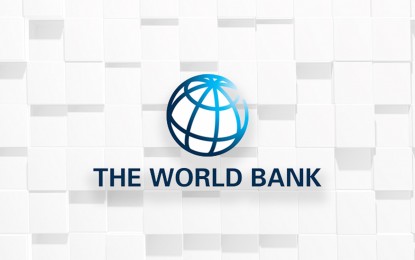
MANILA – The World Bank on Tuesday revised upward its 2024 and 2025 Philippine economic growth outlook, noting that the country's medium-term outlook remains favorable.
In its East Asia and Pacific Economic Update for October, the World Bank said the Philippine economy is projected to grow by 6.0 percent this year, up from its earlier 5.8 percent forecast.
The economic growth projection for 2025 was also revised upward to 6.1 percent from the earlier 5.9 percent.
The international lender's latest growth forecast for the Philippines outpaced that of China, Indonesia, Malaysia, Thailand, and Cambodia.
In a separate Macro Poverty Outlook report, the World Bank said economic growth will be supported by domestic demand and public investment.
"The medium-term outlook remains favorable, averaging 6.0 percent in 2024-26. Strong growth will be driven by robust domestic demand, benefitting from more accommodative monetary policy, and sustained public investment," said the World Bank.
"Private consumption will remain as the main growth engine, supported by steady remittance inflows, a healthy labor market, and lower inflation," it added.
Improving investment activity is also expected to support growth as public investment will remain above 5.0 percent of the country's gross domestic product (GDP).
The World Bank said declining real interest rates will benefit both private investment and household consumption.
It added that the continuous improvement in the labor market and the easing of inflation will also likely boost growth in household incomes.
"Poverty is expected to continue to decline but extreme climatic events pose risks. Poverty incidence is projected to decrease from 17.8 percent in 2021 to 13.6 percent in 2024 and further decrease to 11.3 percent in 2026, using the World Bank’s poverty line for lower-middle-income countries of USD3.65 per day, 2017 PPP (purchasing power parity)," said the World Bank.
The World Bank said risks to the growth outlook remained tilted to the downside.
On the external front, a slowdown in the global economy could weigh on growth, while weaker-than-expected growth in China could also dampen growth due to significant trade linkages.
"On the domestic front, food security may be challenged given persistent weakness in agriculture output, especially in the presence of a stronger-than-expected episode of La Niña. Future commodity price shocks caused by geopolitical conflicts, an increase in trade restrictions, and climate-related disasters remain the main downside risks," the World Bank said.
Artificial Intelligence
The World Bank, meanwhile, said the rapid technological advances, particularly in automation and digitalization, present both opportunities and risks for the Philippines.
"In sectors like Business Process Outsourcing (BPO), which is a key source of growth and jobs in the Philippines, AI could either augment or undermine the country’s competitive edge. AI can be used to complement worker’s skills and increase productivity, or it could substitute jobs that involve routine, low-skill tasks," it said.
"The impact of AI will depend on how policymakers and businesses respond. The impact of AI will depend on how prepared firms, workers and public policies are to face it, making policymakers’ and businesses’ response crucial," the World Bank added. (PNA)
